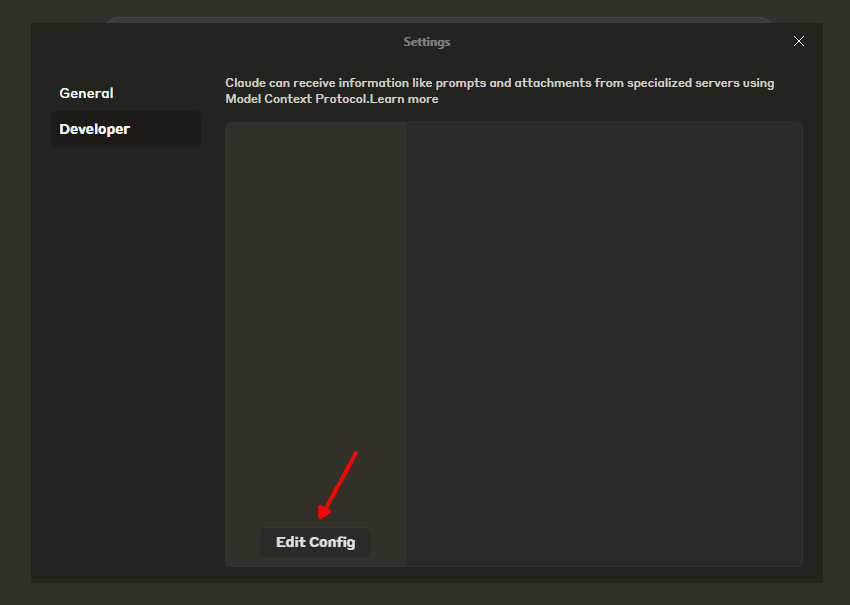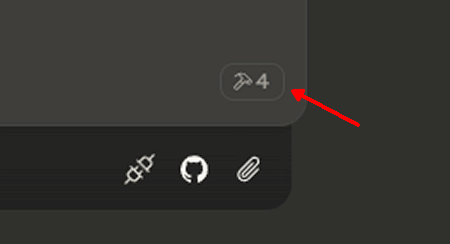Nano Currency
STDIOMCP server for sending Nano currency and retrieving Nano account information
MCP server for sending Nano currency and retrieving Nano account information
This Model Context Protocol (MCP) server gives MCP-compatible clients (which include some AI agents) the ability to send Nano currency and retrieve account & block information via the Nano node RPC.
AI agents are increasingly adopting the MCP standard so this server can give them the ability to send Nano at their owner's request or possibility autonomously in some setups 🤖
The Model Context Protocol (MCP) is an open framework that defines a standardized approach for applications to deliver context to Large Language Models (LLMs).
Nano is a digital currency designed to enable fast, scalable, and feeless transactions. It aims to address common issues in traditional cryptocurrencies, such as high fees and slow processing times, making it an efficient option for everyday peer-to-peer payments. Learn more at nano.org
Caution: LLMs can hallucinate and not always perform as you want so test this server with small amounts of Nano.
🔧 nano_send - Sends a specified amount of Nano currency
🔧 nano_account_info - Retrieves detailed information about a specific Nano account/address
🔧 nano_my_account_info - Retrieves detailed information about your predefined Nano account/address
🔧 block_info - Retrieves detailed information about a specific Nano block
Make sure you have Node.js with NPM installed.
git clone https://github.com/kilkelly/nano-currency-mcp-server.git
cd nano-currency-mcp-server
npm install
You will need an MCP client to connect to the MCP server (see the Claude Desktop setup later as an example MCP client). Each client will have its own way to connect to MCP servers. For your chosen client you will have to find out how environment variables for a MCP server are set. When you know how you will need to set the following environment variables to use the Nano Currency MCP Server.
NANO_RPC_URL - URL which should be used to communicate with a Nano node RPC. This can be a local or remotely hosted endpoint.
This URL value is required.
NANO_WORK_GENERATION_URL - URL which should be used to communicate with an endpoint that supports the work_generate RPC command for work generation. If not specified, defaults to NANO_RPC_URL. Used by tool 🔧 nano_send
NANO_PRIVATE_KEY - Nano private key which will be used to sign send transactions and to derive the Nano address from. Caution: 🚨NOT THE WALLET SEED🚨. Test with the private key of an account with a small Nano balance. Used by tools 🔧 nano_send and 🔧 nano_my_account_info
NANO_MAX_SEND_AMOUNT - Maximum amount (in nano/Ӿ units) which can be sent in a single transaction. For safety purposes the default maximum send amount is 0.01 nano (Ӿ0.01). You must set this variable explicitly to grant the power to send higher amounts. Used by tools: 🔧 nano_send

Developer tab and then Edit Config button to open the location of the Claude config file claude_desktop_config.json
claude_desktop_config.json in your text editor of choice and enter the following but swapping out the values for your unique configuration:{
"mcpServers": {
"nano_currency": {
"command": "ENTER_FULL_FILE_PATH_TO_NODE_DOT_EXE_ON_YOUR_SYSTEM",
"args": [
"ENTER_FULL_FILE_PATH_TO_NANO_CURRENCY_JS_FILE_FROM_THIS_REPOSITORY"
],
"env": {
"NANO_RPC_URL": "ENTER_YOUR_NANO_RPC_URL",
"NANO_WORK_GENERATION_URL": "ENTER_YOUR_NANO_WORK_GENERATION_URL",
"NANO_PRIVATE_KEY": "ENTER_YOUR_NANO_PRIVATE_KEY",
"NANO_MAX_SEND_AMOUNT": "ENTER_A_NEW_MAX_SEND_AMOUNT"
}
}
}
}
Notes:
node.exe executable in your Node.js installation e.g. C:\\Program Files\\nodejs\\node.exenano-currency.js file in this repository e.g. C:\\projects\\nano-currency-mcp-server\\nano-currency.jsC:\\Program Files\\nodejs\\node.exehttp://localhost:7076claude_desktop_config.json and restart Claude Desktop

https://github.com/user-attachments/assets/c877cc5a-0847-416c-b169-a988cac796f9
As always when working with real world value, in this case Nano, be careful when using this software. The authors and contributors shall not be held liable for any use of this software's functionality, intentional or unintentional, that leads to an undesired lose of funds.
MIT